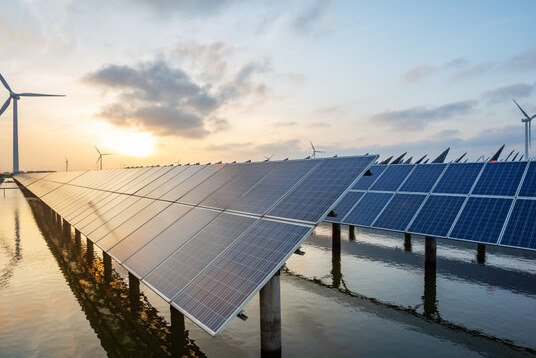Bahrain has set a target to increase the proportion of renewable energy in its electricity generation to 5% by 2025.
Bahrain has intensified its efforts to increase the proportion of renewable energy in its total electricity generation to 5% by 2025, aligning with the goals of the country’s National Energy Transition Plan. This strategic move is part of Bahrain’s broader objective to diversify its energy resources and achieve a renewable resource share of 20% by 2035, as announced by Kamal bin Ahmed Mohammed, President of Bahrain’s Electricity and Water Authority (EWA), according to the Bahrain News Agency.
Recognizing the importance of transitioning towards sustainable energy, Bahrain has taken significant steps to facilitate the integration of renewable energy sources into its electricity network. Mohammed stated that the EWA has implemented various measures to simplify the connection process for renewable energy applications and establish procedures to streamline the integration of these resources.
“Bahrain is fully committed to its transition to sustainable energy and meeting its commitments outlined in COP26. We are investing in renewable energy resources to reduce carbon emissions and ultimately achieve net-zero emissions by 2060,” Mohammed emphasized. The country’s dedication to renewable energy aligns with global efforts to combat climate change and create a sustainable future.
The EWA’s President further disclosed that the authority has adopted eligibility criteria for the enrollment of consultants and contractors specializing in distributed renewable energy resources. This initiative aims to ensure that qualified professionals with the necessary expertise are involved in the development and implementation of renewable energy projects in Bahrain. By engaging experienced consultants and contractors, Bahrain can maximize the efficiency and effectiveness of its renewable energy initiatives.
Bahrain’s National Energy Transition Plan encompasses a comprehensive strategy to transform the country’s energy sector. It includes the adoption of renewable energy technologies, increased energy efficiency measures, and the reduction of greenhouse gas emissions. By diversifying its energy mix and reducing reliance on fossil fuels, Bahrain aims to enhance energy security, promote sustainable development, and contribute to global efforts to mitigate climate change.
The 5% target for renewable energy share in electricity generation by 2025 signifies a significant milestone in Bahrain’s energy transition journey. It reflects the country’s commitment to embracing cleaner and more sustainable sources of power. Renewable energy sources such as solar, wind, and biomass have the potential to reduce carbon emissions and promote environmental sustainability.
Bahrain’s ambitious renewable energy goals are in line with its participation in COP26, where nations from around the world collectively work towards reducing carbon emissions and limiting global warming. By investing in renewable energy resources, Bahrain aims to play an active role in the global fight against climate change and contribute to the achievement of international sustainability targets.
The integration of renewable energy sources into Bahrain’s electricity network not only reduces carbon emissions but also fosters innovation, job creation, and economic growth. The development and expansion of renewable energy projects will stimulate the local economy, attracting investments and creating employment opportunities in the renewable energy sector.
As Bahrain progresses towards its renewable energy targets, it will continue to explore innovative technologies and policies to support the growth of the sector. The government’s commitment to the National Energy Transition Plan underscores its determination to achieve long-term sustainability and position Bahrain as a regional leader in renewable energy.
In conclusion, Bahrain’s push to increase the share of renewable energy in its electricity generation to 5% by 2025 demonstrates the country’s dedication to a sustainable energy future. Through the implementation of supportive policies, simplification of procedures, and engagement of qualified professionals, Bahrain is actively working towards its renewable energy goals. By embracing clean energy sources, Bahrain aims to contribute to global efforts to combat climate change, promote economic growth, and enhance energy security.





